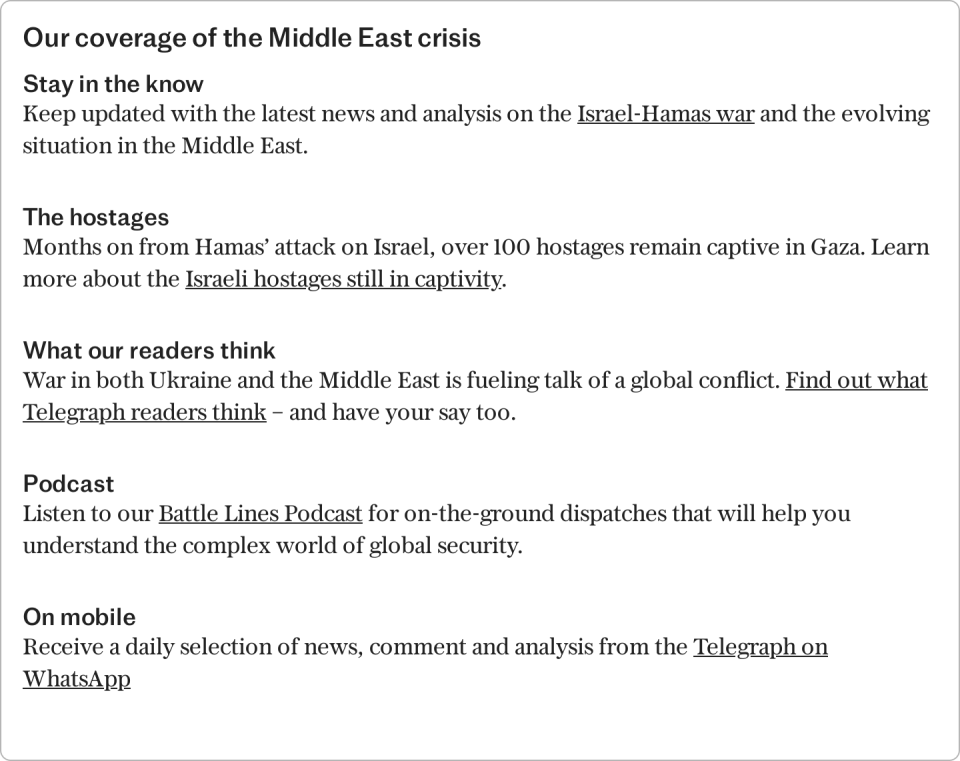More than 1,000 Hamas members being treated in Turkey, says Erdogan
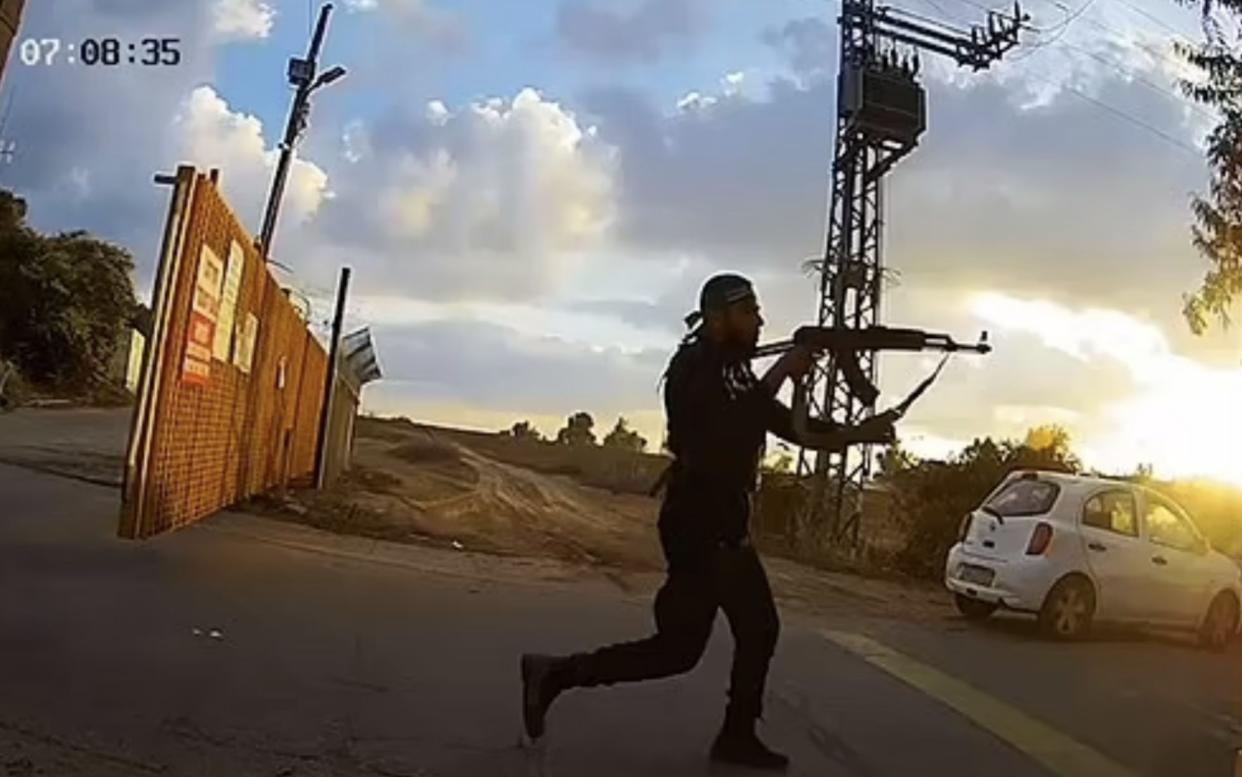
- Oops!Something went wrong.Please try again later.
- Oops!Something went wrong.Please try again later.
Turkey’s president has said that more than 1,000 members of Hamas are being treated in Turkish hospitals.
Recep Tayyip Erdogan, who has railed against Israel since the outbreak of war, described Hamas as “a resistance organisation”.
“So many Hamas members have been killed. The whole of the West is attacking them with all sorts of arms and munitions,” he said.
“Calling Hamas ... a terrorist organisation would be cruel,” Mr Erdogan said, adding that it was a “very important” question.
Hamas is classed as a terrorist organisation by Israel, the United States and the European Union, among others.
It is not clear how 1,000 Hamas members would have come to Turkey from Gaza, which has been sealed off by Israel and Egypt since the war began.
However, not all Hamas members are militant fighters, and some badly injured civilians are know to have been evacuated for treatment.
Turkey is known to host Hamas members and has turned a blind eye in the past to the group’s activities.
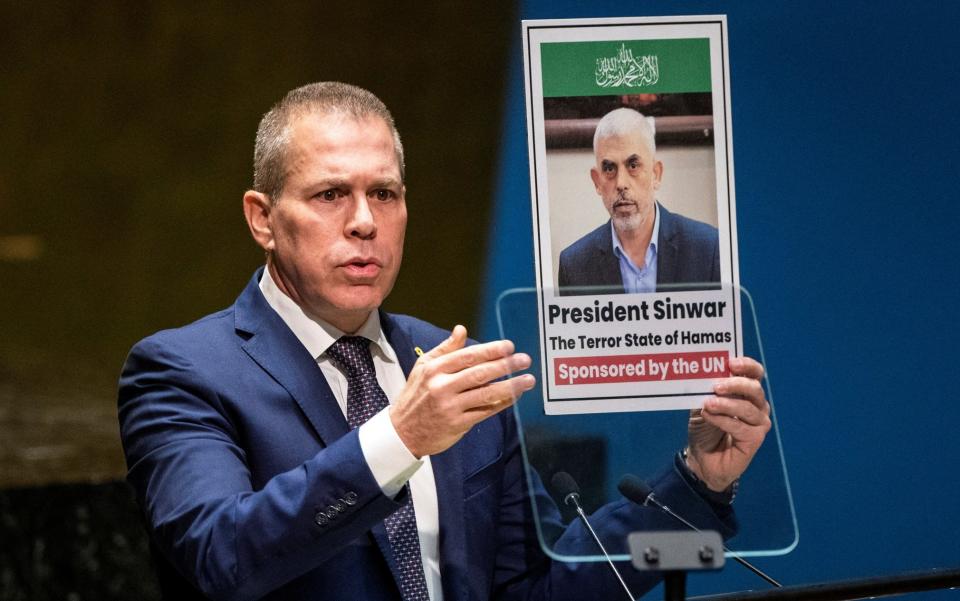
Mr Erdogan has cut trade links with Israel and at the weekend said the state’s “genocidal methods would make Hitler jealous”.
Mr Erdogan’s intervention comes after US officials said the leader of Hamas is not hiding in the southern Gaza city of Rafah, where Israel is poised to mount a major offensive.
Yahya Sinwar, the terror group’s leader and a mastermind of the October 7 attack on Israel, is likely to be hiding in tunnels under the city of Khan Younis to the north, they said.
The intelligence, reported by the New York Times on Monday, raises further questions over Israel’s plan to invade Rafah, which has alienated its staunchest allies, including the US.
Israel has insisted it must enter Rafah, the last Gazan city untouched by fierce fighting and now home to 1.4 million people, to dismantle the remaining Hamas units there and catch the group’s leaders.
Sinwar has become a looming figure in the Israeli national psyche since Oct 7, particularly among politicians and media demanding revenge for the multiple terror attacks that day. He reportedly retained a veto in recent ceasefire talks with Israel, rejecting any major compromises.
Joe Biden indicated last week that Israel would be crossing a red line by invading Rafah as he halted some arms shipments to Israel. It is not clear whether IDF operations there have already crossed that red line.
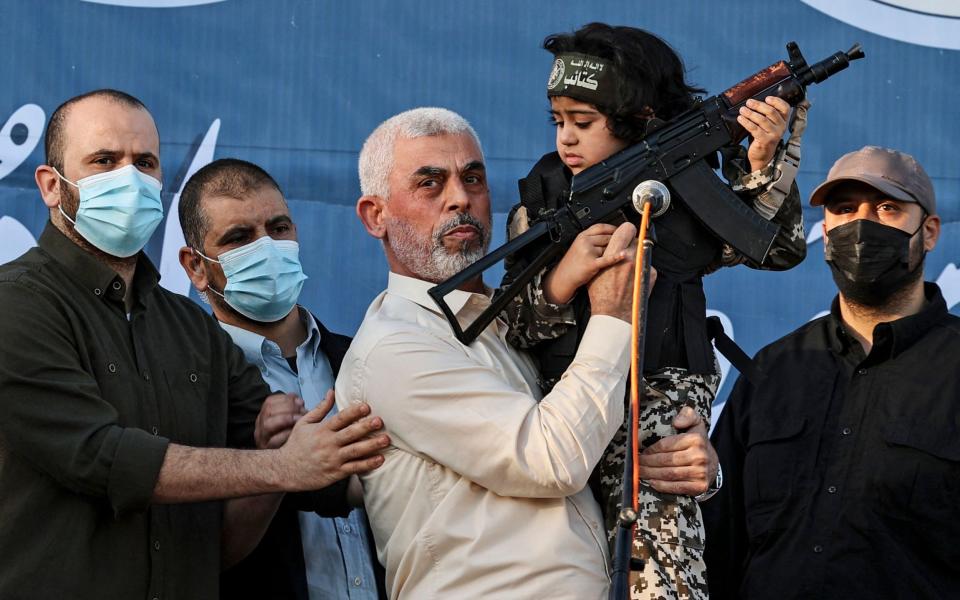
In an overnight call with Antony Blinken, the US secretary of state, Yoav Gallant, Israel’s defence minister, described his country’s mission in Rafah as a “precise operation against remaining Hamas battalions”.
Mr Blinken reiterated Washington’s opposition to a major offensive in the southern city.
On Monday, heavy fighting was reported in the eastern edge of Rafah. Israeli tanks and infantry reportedly crossed a key highway on the outskirts of the city.
And in a sign of escalating fighting in the area, the IDF reported 50 soldiers injured in 24 hours, a high number for Israeli operations during this war.
At least 360,000 Palestinians have fled Rafah since the IDF issued evacuation orders last Monday, according to the UN’s agency for Palestinian refugees.
The Hamas-controlled health ministry in Gaza said on Monday the local health system was “hours away” from collapse as the key crossing used for aid deliveries remained shut.
Egypt warns of Rafah invasion ‘risks’
On Monday afternoon, the Egyptian foreign minister warned Mr Blinken of “grave security risks” entailed by Israel’s manoeuvres in Rafah, which borders his country. Sameh Shoukry also stressed the need to resume aid deliveries as soon as possible.
Earlier on Monday, an unnamed Egyptian official told the Associated Press the Egyptians have been privately warning Israel that the Rafah operation would put into jeopardy the Egyptian-Israeli peace treaty, a cornerstone of regional security.
Mr Shoukry has publicly denied any intention on the part of Egypt to pull out of the treaty.
There was also heavy fighting on Monday in the once-densely populated Jabaliya neighbourhood of Gaza City, an area the Israel Defense Forces (IDF) had captured at the end of last year.
Israeli tanks, backed by air and artillery cover, tried to advance deep into Jabaliya as local residents told Reuters of tank shells landing in the centre of the area. Paramedics responded to reports of deaths and injuries.
Israeli forces pushed locals to evacuate from six UN-funded schools in Jabaliya towards the west of the neighbourhood, according to Al Jazeera.
Also on Monday, Israel marked Memorial Day, a sombre occasion commemorating fallen soldiers, which is even more poignant this year with fresh memories of the October 7 attack and 132 hostages still in Hamas captivity.
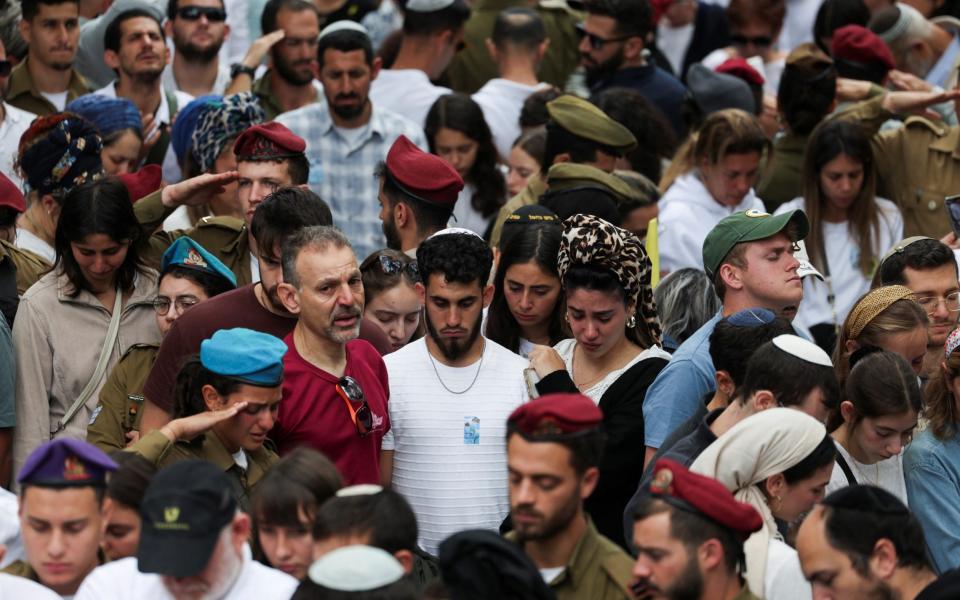
At Israel’s main commemoration ceremony at Jerusalem’s Western Wall on Sunday night, Herzl Halevi, the IDF chief of staff, assumed responsibility for security failures on October 7, saying he “feels the weight on my shoulders every day”.
In Jerusalem on Monday morning, one protester stood and held up a poster saying “7/10”, referring to the day of the massacre as Benjamin Netanyahu, the prime minister, took the stage at the main Memorial Day event to commemorate the dead and promise that his government was “working non-stop to bring everyone back”.
In videos from the ceremony on Mount Herzl, one person can be heard yelling “trash” and another man shouts: “He took my kids!”
At other memorial events, Israelis took their anger out on the country’s hard-Right politicians, accusing them of betraying the hostages at the expense of the war in Gaza.
When Itamar Ben-Gvir, the national security minister, arrived at the military cemetery in the southern city of Ashdod, mourners shouted: “Get out of here, criminal! Trash, you haven’t been in the army for a minute!” Police had put up security barriers and fences to prevent altercations.
In Ofakim, where Hamas fighters went on a rampage for almost 24 hours on October 7, the mother of hostage Matan Zangauker confronted Bezalel Smotrich, Israel’s finance minister, outside the military cemetery, asking him to put the hostages first – those “who are still alive, who can still be saved”.
